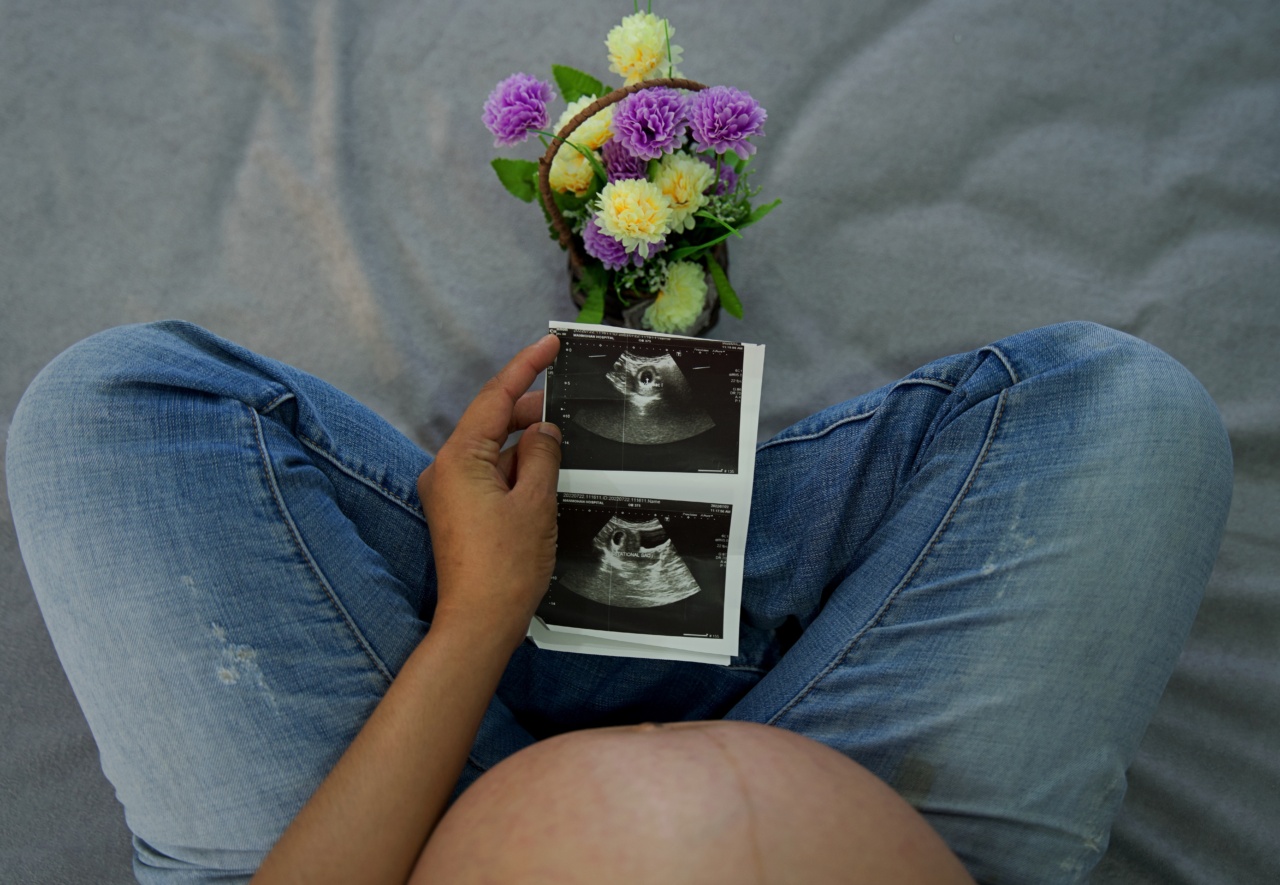Spotting or bleeding during pregnancy can be a frightening experience for any pregnant woman. Although it is relatively common and can often be benign, bleeding during pregnancy should not be ignored as it can be a sign of serious complications.
Types of Bleeding During Pregnancy
There are two types of bleeding associated with pregnancy:.
: Spotting
Spotting is the presence of light bleeding that usually only lasts for a few hours. It is typically pink or brown in color and can be caused by various factors such as implantation bleeding or hormonal changes.
: Heavy Bleeding
Heavy bleeding is the presence of a large amount of blood and can often be accompanied by cramping or sharp abdominal pain. This is often an indication of serious pregnancy complications and requires immediate medical attention.
Common Causes of Bleeding During Pregnancy
Although spotting or light bleeding is relatively common during pregnancy, heavy bleeding can be caused by serious complications such as:.
: Miscarriage
Unfortunately, miscarriages are relatively common during the first trimester of pregnancy. The loss of pregnancy can occur without any warning signs, but often it is accompanied by heavy bleeding and abdominal pain.
: Ectopic Pregnancy
An ectopic pregnancy is one that occurs outside of the uterus, often in the fallopian tube.
This type of pregnancy is often accompanied by heavy bleeding, along with sharp abdominal pain and is an emergency medical situation that requires immediate attention.
: Placenta Previa
Placenta previa occurs when the placenta grows in the lower portion of the uterus and covers the cervix, which can cause heavy bleeding.
Although it can sometimes correct itself later in pregnancy, women with placenta previa are usually advised to avoid intercourse, vigorous exercise, or anything else that could lead to bleeding.
: Placental Abruption
Placental abruption happens when the placenta separates from the wall of the uterus prematurely. This may cause heavy bleeding, abdominal pain, and can be a serious complication that threatens the life of both the mother and the baby.
When to Seek Medical Assistance
Any form of bleeding during pregnancy should be taken seriously and require immediate medical attention, especially if:.
- The amount of bleeding is heavy.
- You are experiencing sharp or severe abdominal pain.
- You are experiencing dizziness, fever, chills, or weakness.
- You are having trouble breathing.
- You are over 20 weeks pregnant.
Diagnosis and Treatment
Upon visiting your doctor, the cause of the bleeding will need to be diagnosed through testing such as a pelvic exam or ultrasound. Depending on the cause of the bleeding, your doctor may recommend various treatments, including:.
: Bed rest
Resting can help reduce the bleeding and lower the risk of further complications as we know resting a lot is not beneficial during pregnancy but in this case, it can help a lot.
: Medication use
Depending on the cause of the bleeding, medication may be prescribed to help manage the symptoms or to address the underlying condition such as a placental abruption.
: Surgery
In some cases, surgery may be necessary to help correct the complication that is causing the bleeding, such as an ectopic pregnancy or placenta previa.
Preventative Measures for Pregnancy Complications
Although there is no definitive way to prevent complications during pregnancy, certain preventative measures can be taken, such as:.
- Maintaining a healthy diet and exercise routine.
- Avoiding tobacco products and alcohol.
- Getting regular prenatal visits with your doctor, so any potential complications can be identified early.
Conclusion
Bleeding during pregnancy can be a frightening experience, but oftentimes it is treatable if diagnosed early.
It’s always a good idea to stay informed about your pregnancy symptoms and to talk with your doctor about any changes you experience during the course of your pregnancy. Remember, any form of bleeding or spotting during pregnancy should be taken seriously, and you should always seek medical attention.



























